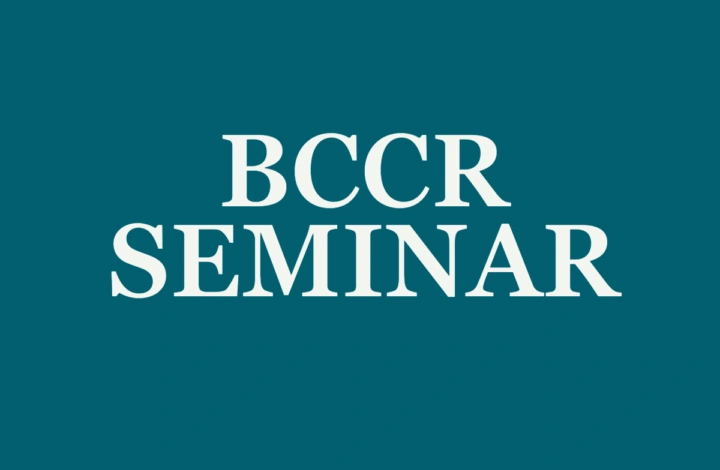Calendar
BCCR Seminar by Michael Bird: "Heinrich Events in the Antipodes?"

Time
12. June 2025, 12:00-13:00
Location
Bjerknes meeting room 3180, Jahnebakken 5 (3rd floor)
Dear all,
This week’s BCCR seminar will be given on Thursday, June 12th by Michael Bird, who is visiting BCCR from James Cook University in Australia. He will present his work on "Heinrich Events in the Antipodes”.
Abstract
Heinrich events are major reorganisations of global ocean circulation that originate in the North Atlantic in response to the melting of icecaps on the adjacent land masses. They are known to drive ‘weak monsoon events’ in China, which is at the northern end of the coupled East Asian and Indo-Australian Monsoon domain. There is currently no record of the impact of Heinrich events in the Australian region. This talk will first provide an insight into the realities of fieldwork in the seasonally dry north Australian savanna region. It will then present a record of pollen, organic carbon and the hydrogen isotope composition on n-alkanes in an 18-metre sedimentary record from a permanently wet sinkhole lagoon in the Northern Territory of Australia. Radiocarbon and OSL dating of the sediments indicates the core provides a continuous 150,000-year record of fire regime, vegetation and climate. Interpretation is complicated by the fact that coastline position near the site changes by ~320 km from interglacial to full glacial conditions as a result of sea level change and a wide flat continental shelf. However, most Heinrich events are evident in the record as short, rapid increases in tree pollen representation and decreases in the hydrogen isotope composition of terrestrially sourced n-alkanes. These trends are both consistent with monsoon intensification in the Indo-Australian Monsoon domain accompanying Heinrich events.
Speaker information
Michael Bird trained as a geologist, obtaining a PhD in isotope geochemistry in 1988 from the Australian National University. Following a postdoctoral fellowship at the University of Western Ontario (Canada), he returned to Australia as Research Fellow, Queen Elizabeth II Fellow and Fellow at the ANU. In 2000 he moved to an Associate Professorship in Singapore then to the Chair in Environmental Change at the University of St. Andrews (Scotland) in 2004. He returned to Australia in 2009 to take up an Australian Research Council Federation, then Laureate, Fellowship. He is currently a Distinguished Professor at James Cook University. His research interests include the carbon cycle, geoarchaeology and environmental change in the tropics.
More events
See allBjerknes choir’s summer concert
